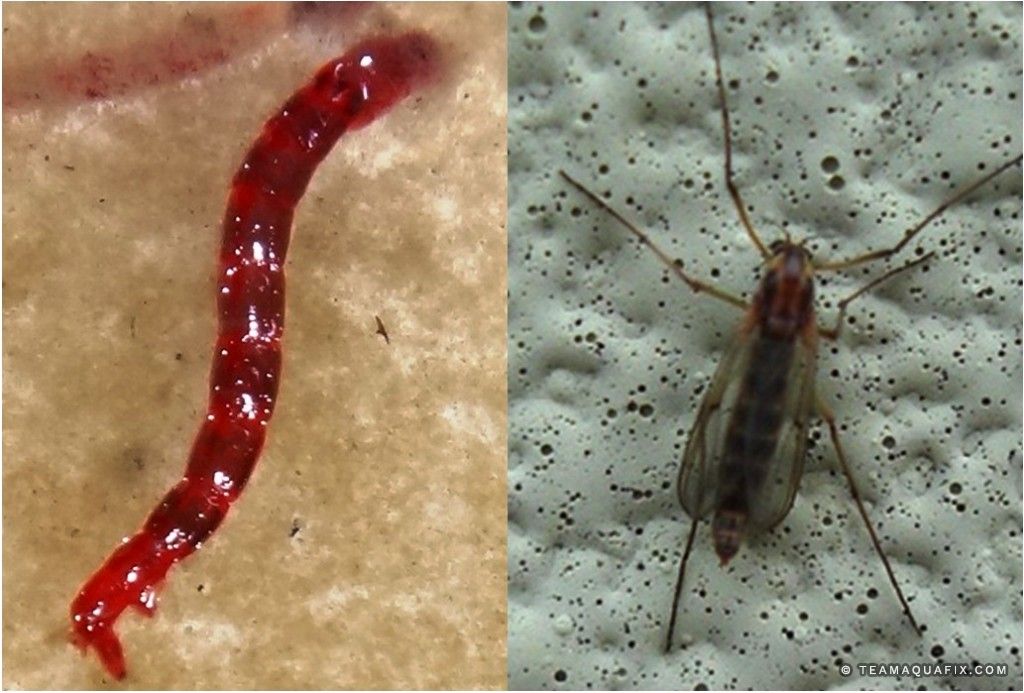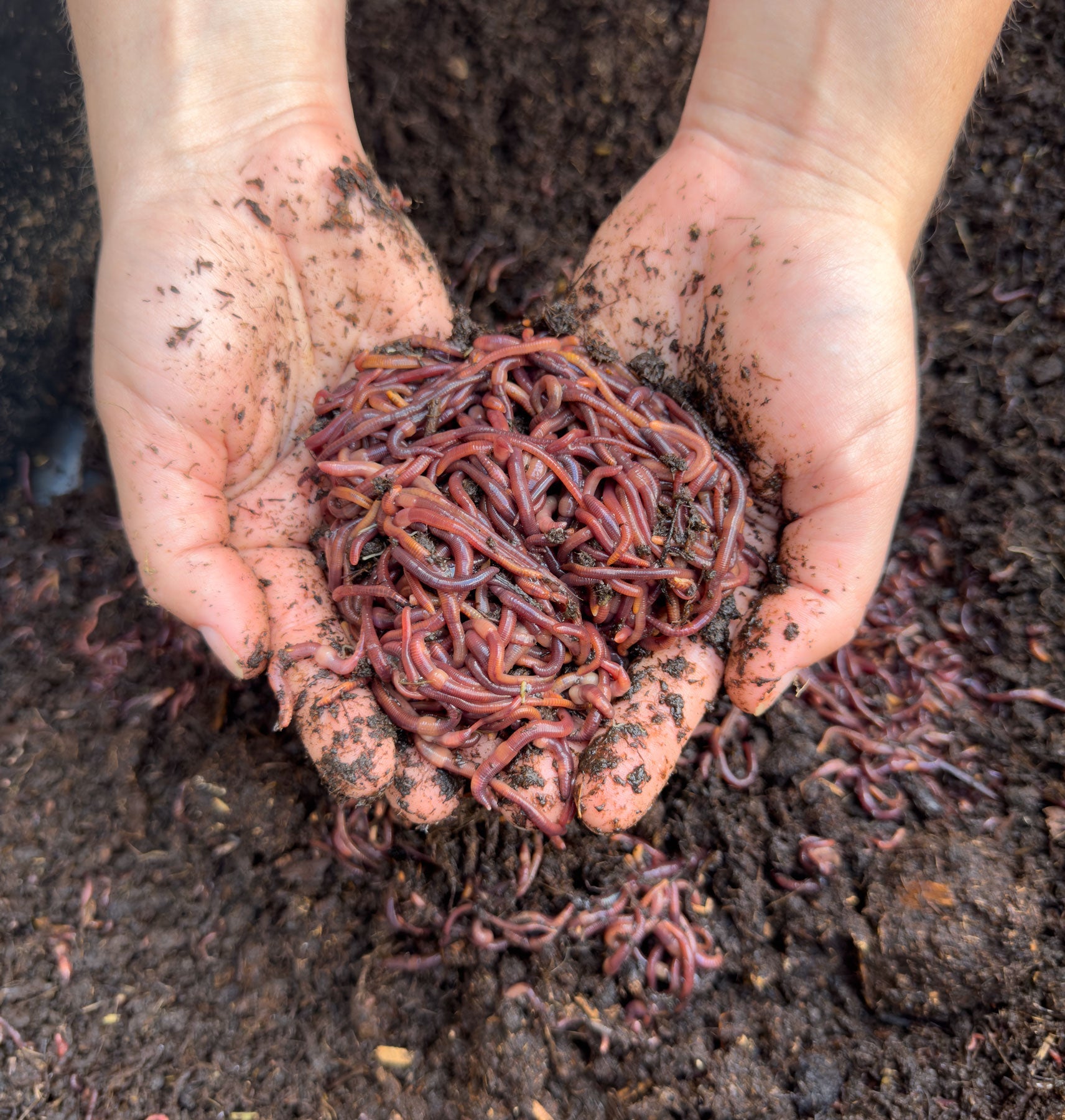Red worms: A beginner’s guide
Red worms: A beginner’s guide
Blog Article
Why Red Wigglers Are Important for Natural Farming
Red wigglers play an essential role in natural farming, mostly with their distinct ability to decompose organic products and enhance dirt health and wellness. The extent of their influence on agricultural practices and dirt biology raises fascinating inquiries concerning the future of natural farming.
Duty of Red Wigglers in Soil Health

In addition, red wigglers enhance dirt framework by developing channels as they tunnel. These networks enhance oygenation and water infiltration, promoting a healthier root atmosphere. Their task additionally aids in maintaining ideal dampness levels, which is vital for healthy and balanced plant growth.

Benefits of Worm Castings
Worm spreadings, the nutrient-rich excrement generated by red wigglers, serve as an effective modification for organic farming. These castings are abundant with vital nutrients such as nitrogen, phosphorus, and potassium, which are vital for plant development. Unlike artificial fertilizers, worm castings launch nutrients slowly, offering a constant supply in time and lowering the risk of nutrient leaching and overflow.
In addition, worm castings improve dirt framework and oygenation, promoting much healthier root systems. Their high organic matter content boosts dampness retention, enabling plants to better endure drought problems. Furthermore, worm spreadings include valuable microorganisms that sustain plant wellness by suppressing microorganisms and boosting nutrient uptake.
The application of worm castings can result in raised crop returns and improved high quality of fruit and vegetables, making them an invaluable resource for organic farmers. Their use additionally straightens with sustainable farming practices, adding to soil fertility without the unfavorable environmental effects related to chemical plant foods. On the whole, the incorporation of worm castings into agricultural techniques fosters a more resistant and productive ecosystem, underscoring the importance of red wigglers in organic farming systems.

Enhancing Nutrient Biking
(red wigglers for sale)Nutrient cycling is an essential process in organic farming, and the combination of red wigglers plays a crucial role in improving this cycle. As red wigglers eat decomposing natural matter, they secrete nutrient-rich spreadings, which are teeming with advantageous microorganisms.
In addition, red wigglers aid to accelerate the mineralization of nutrients, converting them from inert types right into bioavailable types that plants can soak up. This procedure is crucial for maintaining soil fertility and promoting healthy and balanced plant development. The visibility of red wigglers likewise motivates a diverse soil ecosystem, promoting an equilibrium of nutrients that supports numerous plant varieties.
Improving Dirt Framework
The improvement of dirt framework is essential for promoting a healthy and balanced farming environment, and the task of red wigglers dramatically adds to this renovation. These earthworms play an essential duty in freshening the dirt and creating a network of networks that promote water seepage and origin infiltration. As they tunnel through the soil, red wigglers separate compressed layers, enabling much better oxygen exchange and promoting microbial activity.
In addition, the natural matter produced from their waste, called vermicast, boosts dirt aggregation. This process creates secure globs of soil particles, boosting dirt porosity and minimizing erosion (red wigglers). The presence of red wigglers additionally motivates the development of advantageous fungal networks, which are crucial for nutrient uptake by plants
Supporting Lasting Practices
Integrating red wigglers right into visit homepage natural farming methods not only boosts soil health yet additionally promotes lasting farming methods. These earthworms play an essential function in nutrition biking, transforming organic waste right into important compost that enhances the soil. By making use of red wigglers, farmers can successfully reduce dependence on synthetic plant foods, thus minimizing chemical overflow and its detrimental results on communities.
In addition, the consolidation of red wigglers encourages the method of recycling organic products, such as kitchen area scraps and ranch waste. This waste reduction method not just decreases disposal expenses yet also promotes a closed-loop system where nutrients are continuously returned to the dirt (red wigglers). Such practices are crucial in alleviating climate modification, as they boost carbon sequestration and reduce greenhouse gas discharges
In addition, red wigglers improve water retention in the soil, which is critical in times of drought. Their burrowing activities develop networks that allow water to permeate much deeper into the ground, therefore advertising reliable water use. Eventually, incorporating red wigglers right into natural farming not only supports biodiversity but likewise aligns with the concepts of sustainable farming, providing a holistic strategy to food manufacturing.
Conclusion
In conclusion, red wigglers play an important role in organic farming by significantly enhancing dirt wellness and fertility. Thus, the assimilation of red wigglers right into agricultural techniques is essential for advertising sustainability and enhancing general soil quality.
Report this page